In the first part, The Lede recounted the background that led to journalist Jagendra Singh’s death in June 2015.
The Death Of Jagendra Singh Part I: How A Journalist Was Burnt Alive
At the height of the protests following his death, Jagendra’s family met with the then Chief Minister Akhilesh Yadav and received a monetary compensation of Rs 30 lakh from the state government of Uttar Pradesh.
Their key demand, though – a CBI inquiry into his death – was not met by the state.
Barely six months later, the family mounted a sudden U-turn. “The night before the PIL was to be heard by the Supreme Court, Rahul faxed a letter to the lawyer, Colin Gonsalves, saying he wanted to withdraw the petition,” said Mudit Mathur, senior journalist with Tehelka, who had impleaded himself in a similar petition before the court.
“He had been sending me messages that he was under immense pressure, that he was going into hiding, but I did not expect that he would suddenly withdraw at the last moment. The judge was predictably annoyed and we were left red-faced in court,” said Mathur, sighing.
Mathur attempted to continue the second case in the Supreme Court in which he had impleaded himself. But with the family withdrawing the petition, that case too was dead, since Mathur had no locus standi.
For the first time, the facts of the case come tumbling out.
In Khutar, Rahul Singh is pensive as he reminisces about that time.
Rahul Singh: See after we met the Chief Minister and made our demands, some were met, others were not met. After that a lot of pressure was piled on. People around us, our relatives, our neighbours, friends, even some officials – all of them began to put pressure on us, especially on our mother. They started to target mummy that whatever has happened has happened and to make a compromise. Mummy got scared that this is a small family and something might happen to her children. Due to pressure from mummy, we agreed to a compromise.
The Lede: What do you mean by a compromise? Did you meet with the Minister (Rammurti Varma)?
RS: Yes, we met the Minister in Bareilly. There were a number of people. It was a big house, our uncle (Jagendra’s sister’s husband), my elder brother all of us were there.
First he told us that he had not done this, that he had been framed. I told him in that case, why don’t you let the enquiry take place? If you are innocent, then you will go free. But he said no, whatever has happened with your father has happened and I do not want your lives to be ruined. I will take responsibility for you. I will ensure that your sister is married well. As long as I am alive I will take good care of you.
I did not do it, I was framed but whatever has happened was a very bad thing. I want to ensure you are all okay – – he said similar things, there were a lot of people. Then we had to compromise.
He said I am not involved in this, my name has been dragged into this. He said if you forgive me, I will always be with you, I will always be in your debt.
TL: He asked you for forgiveness?
RS: Yes, he said if you forgive me, I will always be in your debt and as long as I am alive I will protect you.
TL: But if he were innocent, as he claimed, why did he ask for forgiveness?
RS: (Laughs) Only he can answer this. I told him a number of times that at least the others who were involved should be caught – the ones who attacked my father, the ones who filed a false case against him. He said he would ensure a probe takes place and that he is innocent.
TL: Do you believe that Rammurti Varma is innocent?
RS: He is guilty in one way or another.
TL: What do you mean?
RS: I mean… the false case happened only at his bidding. If the false complaint had not been lodged, the police would not have gone to my Papa’s house, and all of this would not have happened with my father.
He just said that the FIR that you have filed, please withdraw it. That’s all he said. There were some papers. There were 4-5 points written on it. They asked us to sign on it and my brother and uncle signed on it. Only they can say what was in the paper that they signed.
TL: Did you sign it?
RS: No I did not sign it. The FIR was lodged in my brother’s name. So he and my uncle signed on it and gave notice in court.
TL: Did you get any monetary benefits?
RS: I told you that our uncle brought it when he came home.
TL: How much?
RS: Rs 30 lakhs.
Uneasy Consciences
While the Singh family, on the surface, appears to have made their peace with the decision to make the compromise, all is not well.
Regret and unease is evident. Both brothers are married and the elder one is a father now.
The money from the state has been used to build a larger home and buy a small car.
But the stain of guilt, of having betrayed a courageous father, is yet to be washed off.
“Sometimes I feel like we should have fought the whole fight to the end,” said Rahul Singh. “But at other times I feel whatever happened was a good thing. Because initially there were thousands of people standing with us, then slowly it became 500, then that became 150 and then 100. So in this fashion people left, they sold out, those who were with me too sold out. Those who were asking me to fight turned around and asked me to compromise with the Minister. Then finally the 5-6 people who were left standing beside me were putting pressure on me to compromise so I thought, what can one do when surrounded by traitors. Anything can happen to us. So when I think of that I feel what I did is right.”
Brother Rajan too feels the pricking of conscience.
“Yes I do feel bad,” he said when asked about the compromise. “My Papa was a brave man and we let him down.”
Mother Suman Singh tells herself to be practical, for her children’s sake.
“The man of the house is no more, what can one do?” she asked. “I did not see any other option and I was very afraid for my children,” she said.
Sumer Singh, Jagendra’s father who passed away in January, told the The Green Blood Project collaboration in 2018, about the multiple threats issued to the family. “Even now I can’t sleep the entire night, with the fear, someone will come to take away or kill my family members. I told them, go sleep inside, let them kill me instead. They threatened us a lot, far too much. Even I was shaken,” he began to sob.
“They are kids, what all they had to undergo,” he said. “We were left with little choice. I was scared for the lives of both my grandsons. By then all our relatives and family members pushed us toward making a compromise and we were left with little choice. I want the killers of my son to get punishment. That is important,” he said.
Jagendra’s sister’s husband Ajay Singh, who had fixed the meeting with the Minister, said that he was convinced there was no foul play in Jagendra’s death.
“The neighbours told us that the police never went inside his house,” Ajay said. “For whatever reasons or pressure, he (Jagendra) had set himself ablaze. From what information I got I felt there was no external hand in this, that it was a result of Jagendra’s anger.”
Ajay though admits that he organised a meeting with the Minister and was present at the “compromise” – although he repeatedly denied any money deal.
“No there was no talk of any money with the Minister,” he said. “But yes, I made a request to the Minister – these are very young children, you have to take care of them, you have to help them set their economic situation right and become stable,” he added.
His wife, Jagendra’s sister Lovely though is not as convinced as he is that the Minister is entirely innocent.
“The compromise was done under duress,” she said. “Now my brother is gone, we need our nephews and niece – what if they too get killed? That was my fear,” she said.
A Father’s Daughter
“She is not like us,” said Suman, waving in the direction of 23-year-old Diksha Singh, who sat silently in the house, preoccupied with her thoughts. “She is like her father. She wants to fight. She wants justice for him.”
Diksha is shy but ask her a question about her father and the angst comes tumbling out in a flood.
“I was not aware of the compromise,” said Diksha. “Nobody told me or asked me about it.”
Diksha is speaking of the first meeting in Bareilly when Rahul Singh, Rajan Singh and their uncle met with Minister Varma to chalk out the details of the compromise.
“When I heard about it, I was furious. I did not talk to anyone for a few weeks. I just cried,” she said.
The family consoled the young girl, 19- years- old at the time, explaining to her that many relatives had even scared her mother saying that anything could happen to her only daughter when she went out alone.
Fear, potent and putrid, formed a glue, eventually pulling an unwilling Diksha into the tight distraught circle.
“I went to the meeting at the Shahjahanpur residence of the Minister,” said Diksha. “He kept telling me he did not do it but I did not believe him.”
At this second meeting, the entire family, except for Diksha, signed an affidavit stating that Jagendra Singh had indeed committed suicide.
Upon their return to Khutar, their uncle placed a bag near his sister- in- law Suman, and turned to Rahul and Rajan.
“He said this is for your younger sister, for her wedding,” recollected Rahul. “He said we will conduct her wedding in a grand manner and any further help also, the Minister will do.”
Rs 30 lakh in cash had arrived in Khutar.
“My mother told them we don’t need it, I just did the settlement because I wanted to keep my children safe, that’s it,” said Diksha. “We don’t want anything else from them. They (my uncles) told my mother it is ok, we understand that, but now the money has arrived. Keep it, it will be useful for something. Don’t return it. And then they left the bag in our room and they left,” she said.
“I personally think that we should not have accepted that money because whenever we talk about this to anyone, they think that we did the compromise for the money. That is not right. After the compromise was done, we all left from there. The money came to us through our uncle late in the evening. But what can we do? Everyone thinks like that, but it’s not true, we never wanted that money,” she added, willing her audience to believe her.
Diksha is vehement in her distaste over the whole deal. “I don’t want it (the money),” she said. “I wish that not a single penny of that amount should be used for my marriage.”
She blinks back tears as she recounts her recurring nightmares.
“I dream someone is following me, catching me and leading me to a fire. I also feel as if I am seeing ghosts and every time I only see they all are trying to cause me harm, trying to kill me. And every time it is Papa who comes to save me. Every time someone is trying to cause me harm in the dream, he is the one to save me and only says one thing – So what if there was nobody to save me, I will always be there to save Rachna.”
Diksha Singh
Another recurring nightmare is based on reality. “Another dream I have often. – When I had gone there (hospital), Papa had asked me to give him some water. He said aloud -– Rachna give me water. So I went to get him water and over there and I met his doctor.
He dissuaded me from giving him water. He said, his burn injuries are such, water acts like poison, so don’t give him water. Do you want to kill your own father? I said, of course not, why are you talking like this? If say you say no, I will not give him.
Then I did not give him any water. He kept asking for water. My only regret is, he asked so often for water, in his last breath and I refused to give him, because the doctors said so. This will always remain etched in my mind.
He kept asking me, saying he is extremely thirsty because he said it was burning from inside. He kept saying please give me little, just a little water. And I did not give him any water, with the wish that he would get better soon and my giving him water should not deteriorate his condition.
Because once he gets better, he can return home and have as much water as he wants.
I kept dreaming of him getting better while he kept asking me for water and I refused to give him even a drop of water. I keep remembering his face, his last pained expression when he asked for water, I keep remembering it often, vividly even today,” she said.
In 2016, it was Diksha Singh who tearfully accepted the Mumbai Press Club’s prestigious Red Ink award given posthumously to her father.
The Godfather & Omerta
But it was not just in the home of the Singhs that money suddenly put in an appearance.
Jagendra’s close friend, neighbour and protégé Avnish Mishra, seems to have become wealthy overnight and built himself a larger home. This, despite him earning a pittance as a district stringer for some Hindi dailies, a wage that would not otherwise allow him the luxury.
Mishra says that a compromise must have taken place – if not, “why did the family withdraw the complaint.” He is reluctant to admit his role in prepping the family for the compromise.
Jagendra’s family claims that Avnish Mishra was one of those instrumental in convincing them to accept a handshake from the Minister and that he was in their home every day after Jagendra’s demise, insisting that they arrive at a resolution with the powerful Minister.
Similarly gun shop owner Harishankar Awasthi in Khutar, another close family friend, who calls himself a well-wisher of the family, miraculously found enough money to buy a number of cars.
“I am with the family always,” said Awasthi when we spoke to him in Khutar. “Whatever they have decided and decide to do in future, I will stand by them,” he said. Despite repeated questioning, he denied all claims of a compromise having taken place and said that the family got money only from the state government.
It was only after at least two personal interactions that the Singhs opened up enough to reveal another fact.
That the Minister they loathed was still in touch with them and continued to help them.
In late March, Rahul Singh fell off his motorbike and fractured his arm. His elder brother Rajan rushed him to the doctor who was not available. “My brother called the Minister and asked him for help in organising a doctor,” admitted Rahul. “I did not know about this until we went in to meet the doctor. The doctor asked – oh, so you are the ones sent by Mantriji (Minister). I asked him later if he had called the Minister for help. He said that he did,” said Rahul.
Rajan is a little unsure as to whether to discuss this aspect of their strange relationship with the Minister. “There was a friend who had cancer and needed admission in SGPGI (hospital) so the Minister helped with that,” he said.
On being pressed as to whether he had asked for help for any member of his family, he said – “Yeah, sometimes we ask. He helps us.”
“He talks to me sometimes, asks about work and asks how we are,” said Rajan. Rajan is currently living in his father’s Shahjahanpur house and works nights as a security guard.
Rahul, who was working in a private telecom firm, resigned in January after Jagendra’s father Sumer Singh passed away due to a heart attack. He now lives in Khutar with his wife, mother, Diksha and Rajan’s family.
With the grandfather’s pension of Rs 18,000 no longer coming in, both brothers are desperate for the once-promised government jobs.
Rammurthi Varma could not be contacted despite repeated attempts by various journalists in The Green Blood Project consortium.
A questionnaire sent to the Samajwadi Party spokesperson Tanveer Ahmed went unanswered.

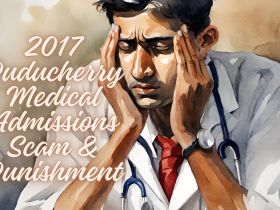
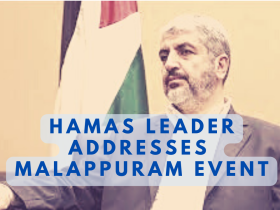
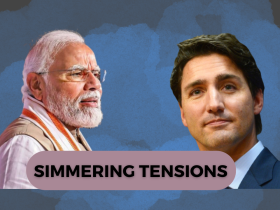
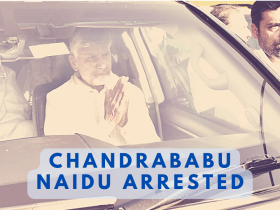
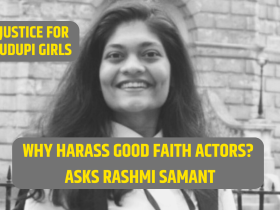
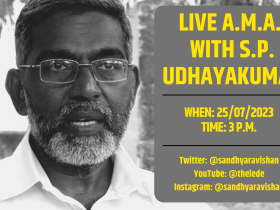
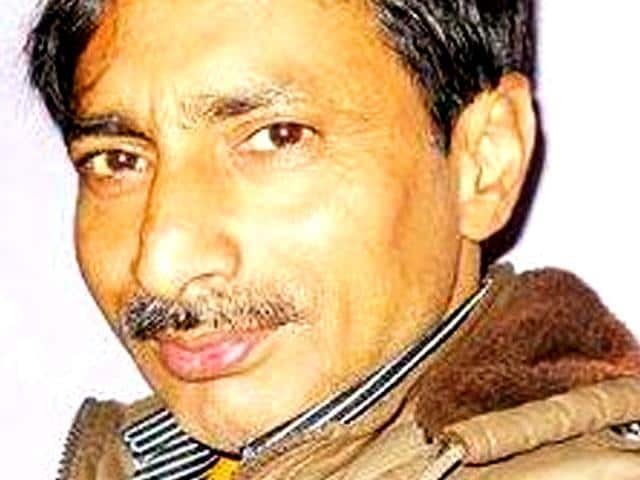
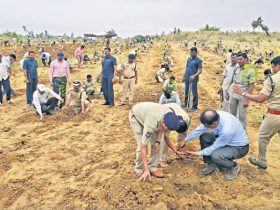


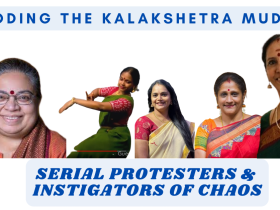

Leave a Reply